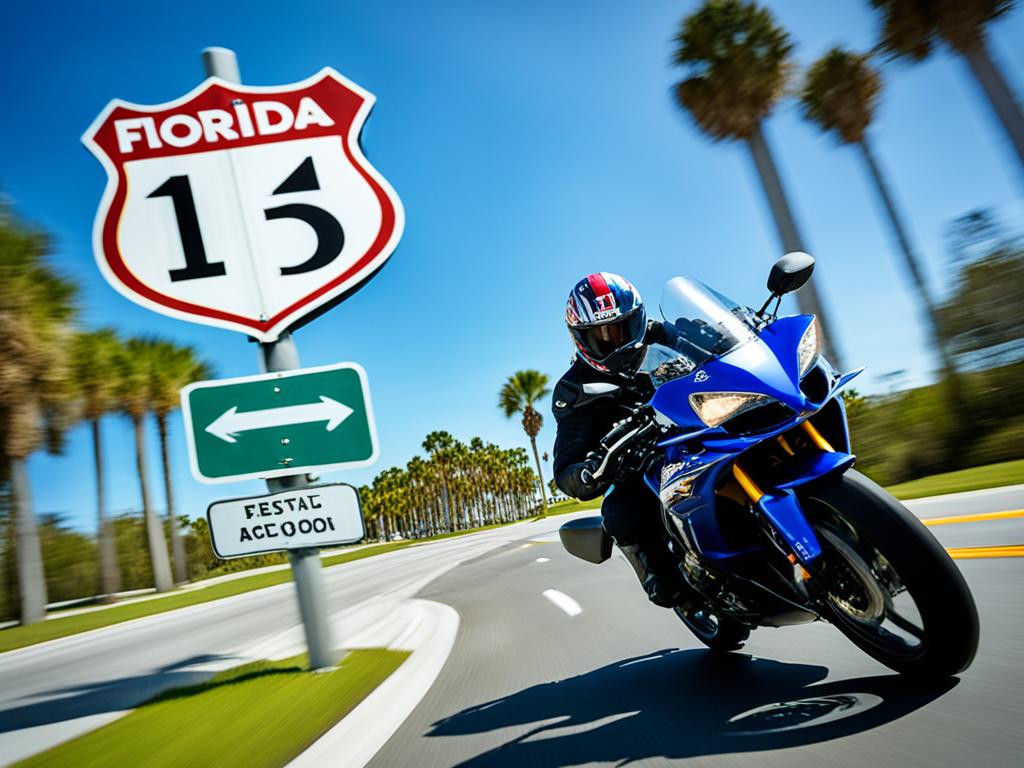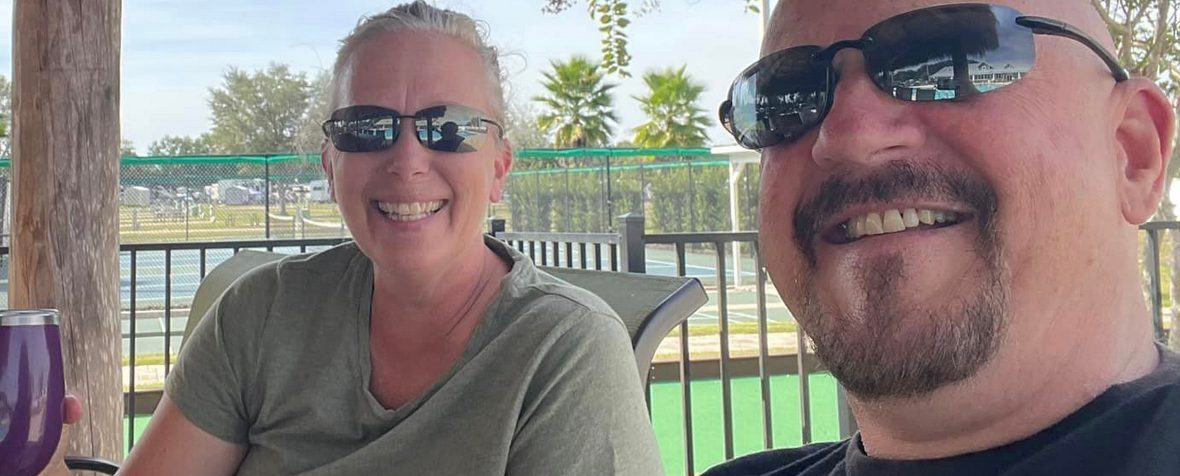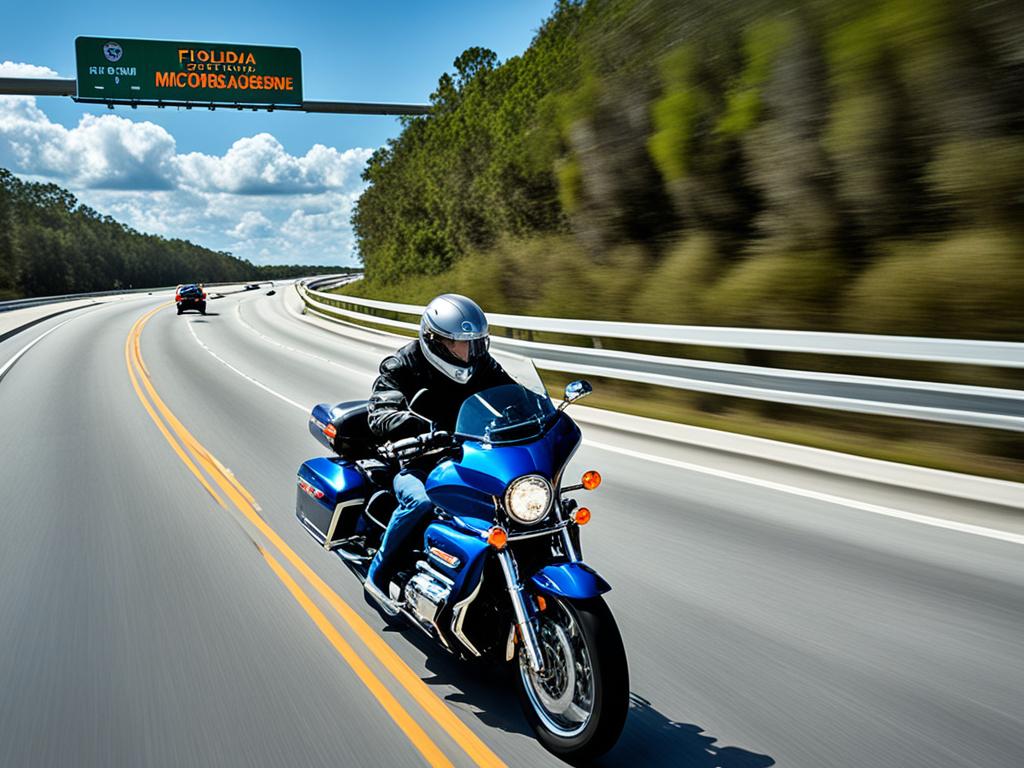Ever wondered if you can just hop on a motorcycle and ride off into the Floridian sunset without official paperwork? The reality might surprise you.
With nearly 600,000 licensed motorcyclists in Florida, you aren’t alone if you’re curious about the motorcycle licensing regulations here. In Florida, residents need a valid motorcycle license or an endorsement to operate motorcycles with engines over 50 cc. Understanding how to get a motorcycle license in Florida can make all the difference. Thankfully, the process is straightforward if you know what steps to follow.
Key Takeaways
- Florida law mandates a valid motorcycle license or endorsement to ride motorcycles with engines over 50 cc.
- A motorcycle endorsement is for current Florida driver’s license holders, whereas a motorcycle-only license is for those without a driver’s license.
- Completion of the Basic RiderCourse (BRC) or the updated BRCu is required.
- The endorsement fee is $7 and lasts a lifetime, while a motorcycle-only license costs $48.
- Insurers offer discounts for those who complete a motorcycle safety course.
Motorcycle License Types in Florida
In Florida, residents have two main types of motorcycle licenses to choose from, depending on their needs and circumstances. These types include the motorcycle endorsement and the motorcycle-only license, both essential under the state’s motorcycle license requirements in Florida.
Motorcycle Endorsement
A motorcycle endorsement is for those who already possess a standard Florida driver’s license. To get this endorsement, individuals need to complete the Basic Rider Course (BRC) or the updated BRCu. These courses require 15 hours of training and cover both theoretical and practical aspects.
The cost for a motorcycle endorsement is $7.00, complemented by a license renewal fee of $48.00. The endorsement is valid for a lifetime and often qualifies the individual for insurance discounts upon successful completion of the safety course. This type of license allows the holder to legally operate motorcycles over 50 ccs, ensuring compliance with Florida motorcycle license laws.
Motorcycle-Only License
The motorcycle-only license is primarily for those who do not hold a standard driver’s license and intend solely to ride motorcycles. As per the Florida motorcycle license requirements, individuals must be at least age 15 to apply for this type of license but can only receive it officially at 16 years of age.
The process necessitates holding a learner’s permit for at least a year without any traffic convictions, as well as having passed the Basic Rider Course (BRC) or its updated counterpart, BRCu. Parents must also sign and notarize a parental consent form for applicants under 18. Besides proving completion of the rider course, applicants need to register their motorcycles with the Department of Motor Vehicles (DMV).
For both licenses, successful completion of the Florida motorcycle license test is a crucial step. By ensuring adherence to motorcycle license laws in Florida, these measures help maintain safety and legality on the roads.
Motorcycle License Requirements in Florida
Understanding the motorcycle license requirements in Florida is essential for a smooth application process. Here’s what you need to know about eligibility criteria and required documentation for your motorcycle license application Florida.
Eligibility Criteria
To meet the eligibility criteria for getting a motorcycle license in Florida, you need a valid driver’s license for endorsements. If you’re aiming for a motorcycle-only license, it’s essential to meet the learner’s permit criteria. Individuals must be at least 15 years old to apply, obtaining the official license at age 16. For anyone under 18, parental consent in the form of a signed and notarized document is required.
Required Documentation
Completing a motorcycle license application Florida requires specific documentation. You need proof of identity, a Social Security number, and evidence of current residency. Additionally, you must present a basic rider course completion card issued within the last year. This card confirms you have completed the necessary training, as mandated by Florida motorcycle license regulations.
Here’s a detailed comparison of the key requirements:
| Criteria | Endorsement | Motorcycle-Only License |
|---|---|---|
| Age | 16+ | 15+ (Learner’s) |
| Parental Consent (Under 18) | Required | Required |
| Training Course | Basic Rider Course | Basic Rider Course |
| Documentation | Proof of identity, Social Security number, Residency | Proof of identity, Social Security number, Residency |
Now you’ve got a clear picture of how to get a motorcycle license in Florida. Follow these steps diligently to ensure a hassle-free application process and enjoy the freedom of riding in the Sunshine State!
Do I Need A Motorcycle License In Florida
Florida law mandates that all motorcycle riders must have a valid motorcycle license or endorsement. With nearly 600,000 licensed motorcyclists in Florida, it’s clear that adhering to this law is essential for safe riding.
If you’re wondering, Do I Need A Motorcycle License In Florida, the answer is yes. The motorcycle licensure process includes 15 hours of training in courses such as the MSF Basic RiderCourse. These programs ensure that riders know the traffic and safety laws necessary for safe riding.
The motorcycle license age requirement in Florida mandates that individuals need to be at least 15 years old to start the process. The official license becomes available at age 16. This age requirement helps ensure that all riders have the necessary skills to ride safely.
According to motorcycle license requirements in Florida, completing a motorcycle safety course can lead to discounts on insurance. This not only ensures safer riding but also provides financial benefits. The motorcycle endorsement fee in Florida is just $7.00, and the license renewal fee is $48.00, making it affordable for most aspiring riders.
- Motorcycle Endorsement Fee: $7.00
- License Renewal Fee: $48.00
| Requirement | Details |
|---|---|
| Training Hours | 15 hours |
| Minimum Age | 15 years old |
| Courses | MSF Basic RiderCourse |
This shows that having the right qualifications and training is non-negotiable. In conclusion, wondering Do I Need A Motorcycle License In Florida isn’t just about legality but ensuring the safety and preparedness of all riders on the road.
Florida Motorcycle Endorsement Process
To achieve a motorcycle endorsement in Florida, start with a valid Class E driver’s license. The motorcycle license requirements in Florida demand that you complete an approved skills course by the Motorcycle Safety Foundation (MSF). Lastly, gather the necessary paperwork and fees to complete the process.
Valid Driver’s License
First, you must hold a valid Florida Class E driver’s license. This is crucial given Florida motorcycle license laws, ensuring that all motorcycle operators have a fundamental understanding of road safety and regulations.
Approved Motorcycle Skills Course
Next, successfully complete the Basic RiderCourse (BRC) or the updated Basic RiderCourse (BRCu) from the Motorcycle Safety Foundation. This step is mandatory according to motorcycle license requirements in Florida. Insurers might even offer discounts for completing an MSF course, reinforcing the benefits of rider education. The Basic RiderCourse encompasses all the necessary skills and knowledge needed to ace the Florida motorcycle license test.
Required Paperwork
Once the skills course is completed, present your current driver’s license and the MSF course completion card. The fee for the motorcycle endorsement is $7.00. This fee is part of the overall $55 licensing costs, which ensure smooth processing under motorcycle license laws in Florida. Additionally, the endorsement lasts a lifetime and automatically renews with your standard driver’s license, simplifying long-term compliance.
Obtaining a Motorcycle-Only License
In Florida, obtaining a motorcycle-only license requires meeting specific criteria, especially for younger applicants. The process ensures that all motorcycle operators have the necessary skills and knowledge to ride safely.
Steps for Underage Applicants
Those under 18 seeking a motorcycle-only license must meet several requirements, including the completion of the Traffic Law and Substance Abuse Education (TLSAE) course. Additionally, they must pass the Class E Knowledge Exam and submit a parental consent form.
The motorcycle license age requirement in Florida dictates that applicants be at least 15 years old to initiate the process but cannot receive their motorcycle license until they turn 16. Completing these steps, including passing an eye and ear exam, ensures that young riders are prepared for the responsibilities of operating a motorcycle.
Adult Application Process
Adults applying for a motorcycle-only license in Florida follow a structured process. They need to complete a Basic Rider Course, which takes about 12-15 hours. The approved motorcycle skills safety course is essential for honing riding abilities and reducing risks on the road.
Once the course is completed, they must present appropriate identity documents and pay the required fees at a driver license/tax collector office. The typical total cost for obtaining this license includes a $48 fee. Successfully navigating the Florida motorcycle endorsement process, combined with a valid application, sets the stage for a lifetime motorcycle-only license in Florida.
Adults must ensure that they adhere to all necessary steps, including document verification and fee payments, to streamline the motorcycle license application Florida process. By following these guidelines, both underage and adult applicants can efficiently obtain their motorcycle-only licenses.
Motorcycle License Age Requirement in Florida
Understanding the motorcycle license age requirement in Florida can help you plan your journey towards legally riding a motorcycle. Here, I’ll break down the minimum age requirements needed to start and obtain a motorcycle license in Florida.
Minimum Age for Motorcycle Permit
The journey begins at the age of 15. At this age, individuals can start the process for a motorcycle permit. To proceed, underage applicants need parental consent. You must ensure the form is notarized, allowing you to kick off the application process for a motorcycle permit. Various documents, such as proof of identity and residency, are needed along the way.

Minimum Age for Motorcycle License
Once you turn 16, you can obtain a motorcycle-only license in Florida. At this age, you must have completed a 15-hour motorcycle safety course to meet the motorcycle license requirements in Florida. This step is in place to ensure all applicants have the necessary skills and know-how to ride safely. Also, remember to maintain insurance coverage that complies with the state’s minimum requirements.
| Age | Requirement |
|---|---|
| 15 Years | Eligible to start process for motorcycle permit (with parental consent) |
| 16 Years | Eligible to obtain a motorcycle license after completing a safety course |
Is Having Insurance Mandatory if I Have a Motorcycle License in Florida?
Having insurance is not a legal requirement to register or operate a motorcycle in Florida, but it’s important to understand the financial risks involved. So, is motorcycle insurance mandatory in florida? While not required by law, it offers crucial protection in case of accidents, safeguarding both riders and others on the road.
Conclusion
Having a motorcycle license in Florida isn’t just a legal requirement; it’s also pivotal for your safety and enjoyment on the road. The “Do I Need A Motorcycle License In Florida” question is answered with a resounding yes. Adhering to *Florida motorcycle license regulations* ensures you have the knowledge and skills to ride safely. The Florida motorcycle license test, which is part of the Basic Rider Course (BRC), validates your competency to handle the complexities of motorcycle riding.
The BRC involves 5 hours of classroom instruction and 10 hours of on-bike coaching, covering essential skills like straight-line riding, turning, and quick stopping. This structured learning experience, driven by professional, experienced rider coaches, culminates in a knowledge test. It’s a comprehensive approach that prepares you for real-world riding.
It’s crucial to remember that riding a motorcycle on public roads in Florida requires completing a state-approved basic rider course, passing a written and skills test, and obtaining a motorcycle endorsement. Stay compliant with Florida motorcycle license regulations, using required gear, and understanding the insurance mandates. This paves the way for safer, more enjoyable riding experiences. Follow these steps diligently, and you’ll be well-prepared to explore Florida’s scenic routes with confidence.

